The EU is discussing the "democratic awakening" in North Africa
Adelina Marini, March 11, 2011
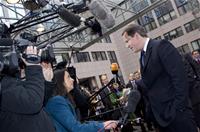 The leaders of the 27 EU member states gathered today in Brussels for an extraordinary European Council on the situation in North Africa and in Libya in particular. There is no unanimity, though, among the 27 heads of state and government regarding the Union's approach toward the Jamahiriya. Yet before the beginning of the Council British Premier David Cameron and French President Nicolas Sarkozy came up with a joint statement, a copy of which had been sent to their colleagues in the Council. In seven points the two leaders propose what the next steps of the European Union should be toward North Africa:
The leaders of the 27 EU member states gathered today in Brussels for an extraordinary European Council on the situation in North Africa and in Libya in particular. There is no unanimity, though, among the 27 heads of state and government regarding the Union's approach toward the Jamahiriya. Yet before the beginning of the Council British Premier David Cameron and French President Nicolas Sarkozy came up with a joint statement, a copy of which had been sent to their colleagues in the Council. In seven points the two leaders propose what the next steps of the European Union should be toward North Africa:
"1. To stop further suffering of the Libyan people, Muammar Gaddafi and his clique should leave;
2. We support the efforts of the Libyan Interim Transitional National Council to prepare for a representative and accountable government. We should send the clear political signal that we consider the Council to be valid political interlocutors, and an important voice for the Libyan people in this phase;
3. We condemn, and call for an immediate halt to, the use of force against  civilians by the Gaddafi regime. We support continued planning to be ready to provide support for all possible contingencies as the situation evolves on the basis of demonstrable need, a clear legal basis and firm regional support [the three principles of NATO's actions too]. This could include a no-fly zone or other options against air attacks, working with Allies and partners, especially those in the region. We are working together on elements of an appropriate UN Security Council resolution;
civilians by the Gaddafi regime. We support continued planning to be ready to provide support for all possible contingencies as the situation evolves on the basis of demonstrable need, a clear legal basis and firm regional support [the three principles of NATO's actions too]. This could include a no-fly zone or other options against air attacks, working with Allies and partners, especially those in the region. We are working together on elements of an appropriate UN Security Council resolution;
4. We call upon the UN to evaluate and closely monitor the humanitarian situation in Libya, and to make proposals to ensure full access for humanitarian organisations and assistance to displaced people. We stand ready to help in this endeavour;
5. We support the investigation announced by the International Criminal Court Prosecutor, and the message this sends that the regime will be held to account for its actions;
6. We call on all countries to implement fully the arms embargo, including banning the provision of armed mercenary personnel and to take measures to discourage such recruitments, or departure of planes or convoys to that end, and we stand ready to co-operate with them in this regard;
7. Regarding displaced persons outside Libya, should the situation deteriorate, we should all be ready to act through further financial and material assistance, including military assets, in cooperation with international organisations and countries concerned".
A large part of the text of the letter overlaps the conclusions of NATO defence ministers who met in Brussels yesterday. Before the beginning of the Council the leaders who agreed to comment on the situation were not many. Logically, most eloquent was the British PM, David Cameron, who as a co-author of the above letter, gave a short statement and refused to answer to questions.
Given the tragedy that hit Japan earlier today (record powerful earthquake of 8.9 on the Richter scale, that caused a 10-meters high tsunami wave), Mr Cameron started his statement firstly by sending his condolences to the Japanese people: "We've had a terrible reminder of the destructive power of nature", he said by adding that the EU would discuss helping Japan.
Regarding the topic of the Council - Libya - Cameron underlined that it was especially important the EU to show unity in sending an unequivocal message that Gaddafi had to leave and that his regime was illegitimate. "And we are going to step up today in the European Council measures to isolate that regime, measures to put pressure on that regime and we should also plan for every eventualities I've been arguing now for two weeks. I think it is the moment for Europe to understand that we should show real ambition about recognising what's happening in North Africa is a democratic awakening", the British prime minister said.
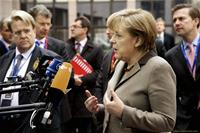 His opinion was shared by French President Nicolas Sarkozy and German Chancellor Angela Merkel. Disagreement, though, was shown by the prime minister of Sweden, Fredrik Reinfeldt. According to him it was clear that EU's main message should be the stop of violence. Military intervention, however, is more in the competences of the Security Council, the Arab League and NATO. The European Union should tackle political dialogue in the country as well as humanitarian aid. Mr Reinfeldt added that the conclusions from the meeting of the leaders of the EU must be Gaddafi to go. The Swedish prime minister also said that the EU must make everything possible to support the Japanese people.
His opinion was shared by French President Nicolas Sarkozy and German Chancellor Angela Merkel. Disagreement, though, was shown by the prime minister of Sweden, Fredrik Reinfeldt. According to him it was clear that EU's main message should be the stop of violence. Military intervention, however, is more in the competences of the Security Council, the Arab League and NATO. The European Union should tackle political dialogue in the country as well as humanitarian aid. Mr Reinfeldt added that the conclusions from the meeting of the leaders of the EU must be Gaddafi to go. The Swedish prime minister also said that the EU must make everything possible to support the Japanese people.
The Ministry of Foreign Affairs' spokesperson, Vessela Tcherneva, told euinside on Thursday that Bulgaria's position is any military actions in the EU to be based on international law. Regretfully, again, the Bulgarian prime minister was sitting alone and was not discussing anything with his colleagues. As could be expected, most active in networking were Angela Merkel and Nicolas Sarkozy.
Today's European Council is the first for the new Irish Prime Minister Enda 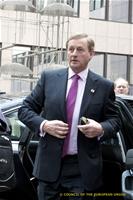 Kenny, in office for two days only. As tonight starts the first of its kind European Council for the euro area only, Enda Kenny said before journalists in the morning that he came to Brussels with a strong mandate from the Irish people in terms of the deal with the International Monetary Fund and the European Union.
Kenny, in office for two days only. As tonight starts the first of its kind European Council for the euro area only, Enda Kenny said before journalists in the morning that he came to Brussels with a strong mandate from the Irish people in terms of the deal with the International Monetary Fund and the European Union.
A little after the beginning of the Council, the leaders came up with a statement on the earthquake in Japan: "We learned with great concern the news of the devastating earthquake and tsunami that today struck Japan and the Pacific region. We express our condolences and support to the governments and the people affected. In addition to national responses, we have asked the High Representative and the Commission to mobilise all appropriate assistance".
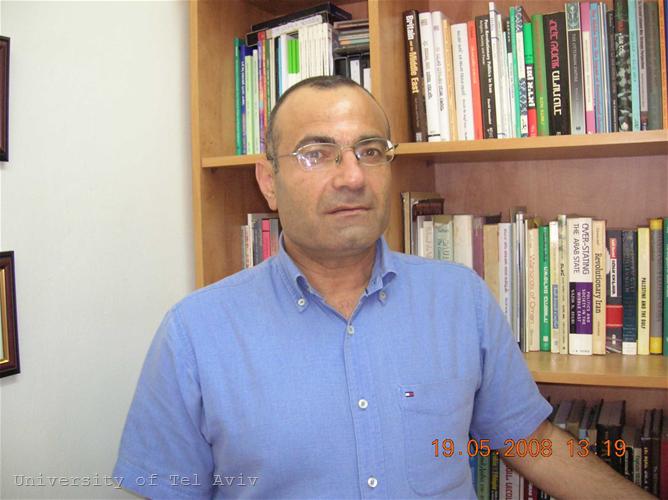 | © University of Tel Aviv
| © University of Tel Aviv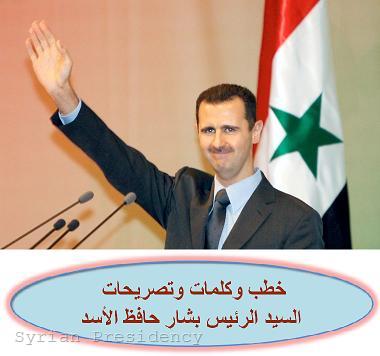 | © Syrian Presidency
| © Syrian Presidency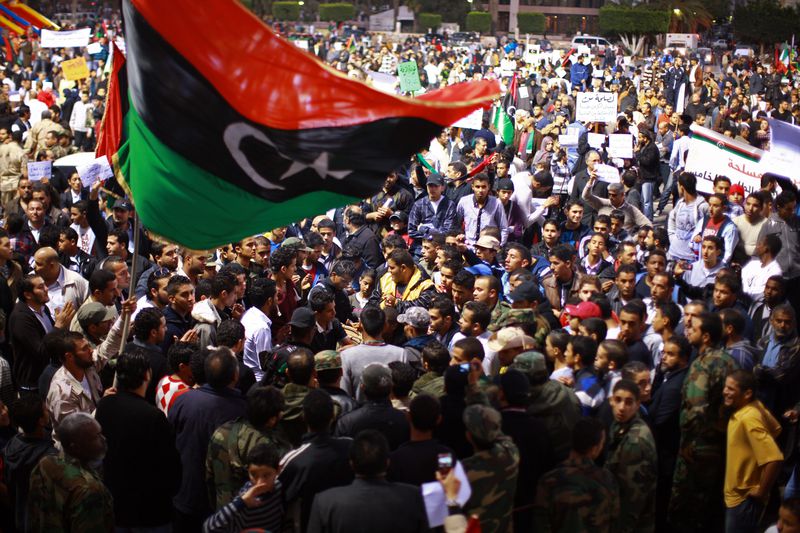 | © UN
| © UN